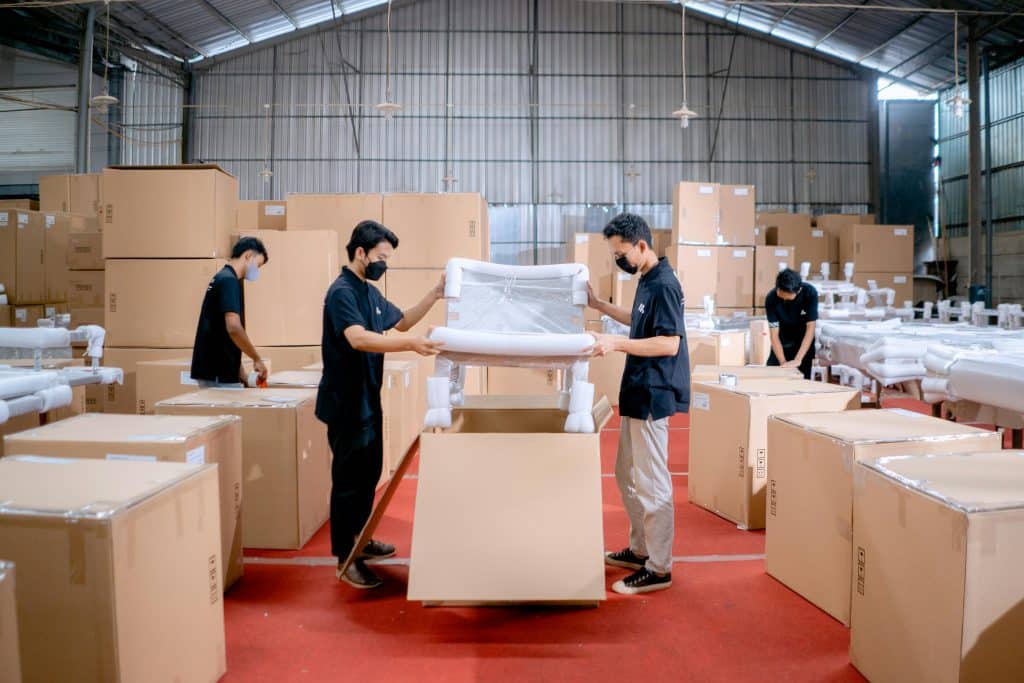- Advanced Warehouse Management Systems (WMS) revolutionize order processing, offering real-time inventory tracking for increased accuracy and efficiency.
- Seamless coordination through WMS aligns with Singapore’s fast-paced retail environment, providing a strategic edge for enhanced customer satisfaction.
- Last-mile delivery strategies are crucial in Singapore’s urban landscape, demanding innovative methods like autonomous vehicles and route optimization for efficiency.
- Optimizing inventory management involves accurate demand forecasting, preventing excess inventory and stockouts, and ensuring strategic and cost-effective operations.
- Workforce training is essential for efficient retail fulfillment, emphasizing the role of skilled employees and the importance of ongoing training programs.
In the dynamic realm of Singapore’s retail sector, optimizing fulfillment operations is paramount for sustained success. This article explores five strategic pathways designed to elevate efficiency and customer satisfaction in retail fulfillment. From advanced warehouse management systems to integrating forklifts in Singapore, each method is tailored to address the unique challenges prevalent in Singapore’s market.
As retailers strive to meet evolving consumer expectations, these solutions offer valuable insights and actionable strategies to navigate and excel in the competitive landscape. This guide empowers businesses to enhance their retail fulfillment operations for a more streamlined and customer-centric approach. Here are five ways to enhance retail fulfillment operations in Singapore.
Implementing Advanced Warehouse Management Systems (WMS)
Implementing Advanced Warehouse Management Systems (WMS) revolutionizes retail fulfillment in Singapore. WMS brings many benefits, notably streamlining order processing with increased accuracy and efficiency. By integrating cutting-edge technology, retailers gain a real-time view of their inventory, allowing for precise tracking, reducing errors, and ensuring optimal stock levels. This transformative approach enhances order fulfillment speed and mitigates risks associated with stockouts and overstock situations. The seamless coordination offered by WMS aligns with Singapore’s fast-paced retail environment, providing businesses with a strategic edge in delivering enhanced customer satisfaction.
Enhancing Last-Mile Delivery Strategies

In enhancing retail fulfillment operations in Singapore, a critical focus lies in refining last-mile delivery strategies, a facet instrumental in ensuring a seamless customer experience. The city-state’s unique urban landscape demands innovative approaches to meet the increasing demands of consumers.
Exploring Innovative Delivery Methods and Technologies
To stay ahead in Singapore’s competitive retail market, businesses are exploring cutting-edge delivery methods and technologies. Companies aim to revolutionize last-mile logistics by incorporating autonomous vehicles, drones, and route optimization software. Autonomous cars, for instance, offer speed and efficiency, reducing delivery times and enhancing overall service.
Importance of Reliable Last-Mile Services in Singapore’s Urban Landscape
In Singapore’s densely populated urban landscape, the importance of reliable last-mile services cannot be overstated. Efficient last-mile delivery ensures timely and accurate delivery of products to the end consumer, fostering customer satisfaction and loyalty. With consumers expecting faster and more convenient delivery options, businesses must invest in robust last-mile solutions to meet these evolving expectations.
Integrate Smart Technologies
Integrating smart technologies like real-time tracking and communication systems further adds transparency and accountability to last-mile operations. By addressing the challenges unique to Singapore’s urban environment, businesses can meet customer expectations and gain a competitive advantage in the market. As the demand for e-commerce continues to rise, a strategic focus on enhancing last-mile delivery strategies becomes paramount for retailers aiming to thrive in Singapore’s dynamic retail landscape.
Optimizing Inventory Management
Optimizing inventory management emerges as a pivotal factor in refining retail fulfillment operations in Singapore, where precision and agility are crucial for meeting consumer demands. Businesses recognize the significance of accurate demand forecasting, the cornerstone of effective inventory management.
Importance of Accurate Demand Forecasting
Accurate demand forecasting allows businesses to align their inventory levels with consumer needs. In Singapore’s dynamic market, where consumer preferences can swiftly evolve, precise forecasting enables retailers to stock the right products in the right quantities. Leveraging data analytics and advanced forecasting algorithms facilitates a more nuanced understanding of market trends, helping businesses stay ahead of demand fluctuations.
Strategies for Minimizing Excess Inventory and Stockouts
Businesses adopt strategies to minimize excess inventory and stockouts to strike a delicate balance. Implementing just-in-time inventory systems and employing data-driven reorder points to prevent overstock situations, reduce holding costs, and minimize the risk of product obsolescence. Conversely, proactive communication with suppliers, strategic safety stock levels, and diversification of suppliers can mitigate the risk of stockouts, ensuring that popular products remain available to customers.
Workforce Training and Skill Development

Workforce training and skill development constitute a cornerstone for achieving efficient retail fulfillment operations in Singapore. Recognizing the industry’s dynamic nature, businesses are placing a premium on cultivating a skilled workforce.
Role of a Skilled Workforce in Efficient Retail Fulfillment
A skilled workforce plays a pivotal role in navigating the intricacies of retail fulfillment. Employees with expertise in order processing, inventory management, and technology utilization contribute to streamlined operations. Skilled workers are more adept at handling complex tasks, reducing errors, and enhancing overall efficiency in the supply chain. Their proficiency ensures the fulfillment process aligns seamlessly with customer expectations, contributing to heightened satisfaction.
Importance of Ongoing Training Programs for Employees
In Singapore’s competitive retail landscape, the importance of ongoing training programs cannot be overstated. Continuous training keeps employees abreast of industry trends, technological advancements, and evolving customer expectations. It ensures that the workforce remains adaptable and equipped with the necessary skills to meet the challenges posed by the rapidly changing retail environment. Training programs enhance individual skill sets and foster a culture of continuous improvement within the organization.
Integration of Heavy Equipment in Warehouse Operations
The integration of heavy equipment emerges as a critical element in optimizing warehouse operations for efficient retail fulfillment in Singapore. Heavy equipment is pivotal in streamlining warehouse processes enhancing productivity and operational efficiency.
Highlighting the Role of Heavy Equipment in Streamlining Warehouse Processes
Heavy equipment is instrumental in expediting a myriad of warehouse processes. They streamline the movement of goods within the facility, enabling swift transportation of products from storage to packing or shipping areas. To facilitate this coordination, businesses should invest in reliable equipment to streamline warehouse operations. Due to this, the business should look for reliable forklift. The equipment allows businesses to move products inside a warehouse cost-effectively.
Versatile Maneuverability
With their versatile maneuverability, forklifts efficiently navigate through narrow aisles and high shelves, maximizing space utilization in Singapore’s often space-constrained warehouses. The ease and speed with which the equipment handles material transportation significantly reduce the time required for each step of the fulfillment process.
In conclusion, implementing advanced warehouse management systems, refining last-mile delivery strategies, optimizing inventory management, prioritizing workforce training, and integrating forklifts prove integral to enhancing retail fulfillment operations in Singapore. The city’s dynamic and competitive retail landscape demands innovative solutions to meet consumer expectations. By embracing these strategic approaches, businesses can not only navigate unique challenges but also gain a significant edge in efficiency, customer satisfaction, and overall operational excellence. As Singapore’s retail sector continues to evolve, adopting these five strategies ensures retailers are well-positioned to thrive in this dynamic and demanding marketplace.
